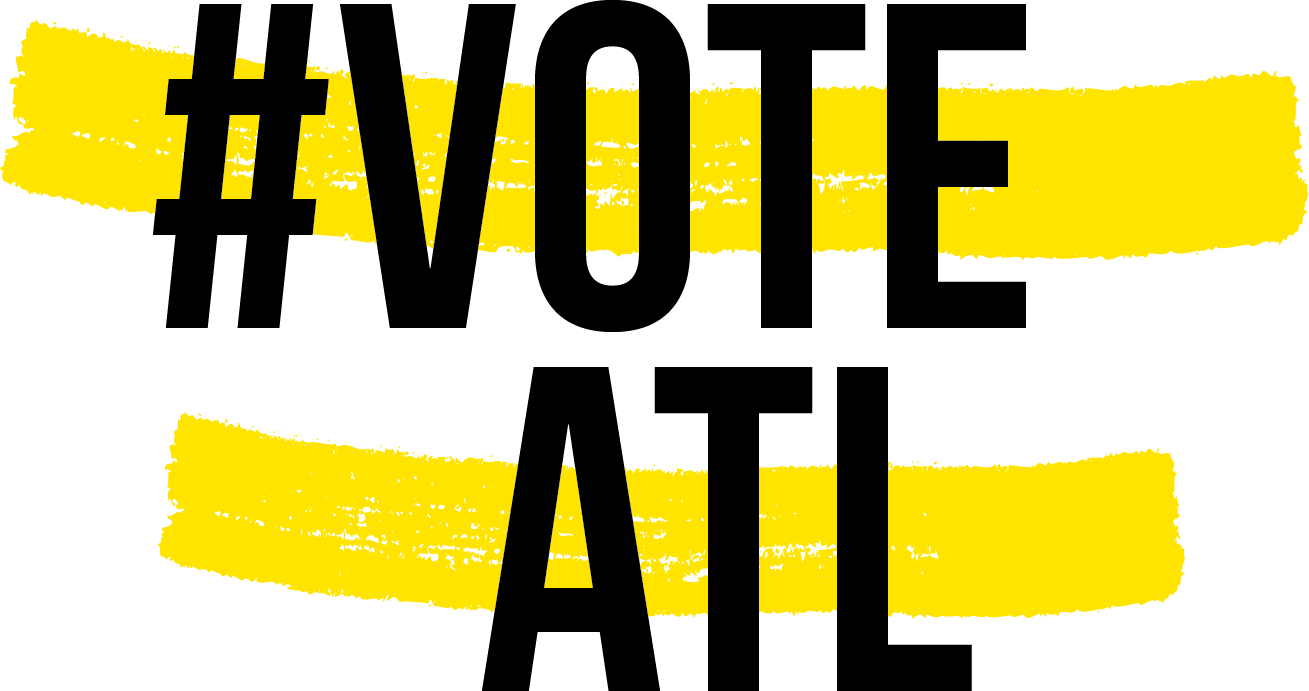Job Application:
Atlanta City Council - District 3
Candidate Name:
Shalise Steele-Young
Other resources:
The Center for Civic Innovation sent each of the qualified candidates for the District 3 Special Election a job description and questionnaire. Below are Shalise’s responses.
1. QUALIFIED TO GOVERN
2. CULTURE FIT
3. DEMONSTRATES PEOPLE-CENTERED APPROACHES
4. PROACTIVE & RELENTLESS RELATIONSHIP-BUILDER
5. STRONG INTEREST IN TRANSPARENCY
QUALIFIED TO GOVERN
Q: What do you think is the most important role of the City Council?
A: The most important role of the city council is to: communicate public policy data, collect public policy data, and to distribute public policy data.
Q: Please describe, in sufficient detail, one professional accomplishment or contribution of which you are most proud. These examples should illustrate skills and capabilities you think apply to governing the City of Atlanta.
A: A professional accomplishment/contribution of which I am most proud of is to plan, develop, evaluate, and analyze public policy reference points for the District 3 Westside Revive master plan -- to shepherd the participation of the City of Atlanta Planning Department, the Atlanta City Council, and stakeholders of the City of Atlanta government -- and to guarantee the participation and inclusion of neighborhood, community, faith, and small business leaders in this master planning process.
Q: Please list or describe no more than 3 current and past activities you participated in as a private citizen (not an elected official) in which you have acquired skills and perspectives that will make you a stronger mayor. Include your role in the activity and the year(s) in which you were involved.
A: I have conducted service delivery assessments with disadvantaged communities and highlighted the gaps in service-delivery strategies. I have done these assessments as a professional social worker for over 23 years -- and for over a decade in the metropolitan Atlanta region, with a dedicated focus on District 3 since 2007. The organizations/initiatives I have done these assessments through include: United Way, City of Atlanta Mayor’s Office of Human Services, Atlanta Regional Commission on Homelessness, and the Tri-Jurisdictional Continuum of Care.
CULTURE FIT
Q: What does it mean to be an Atlantan/ATLien in 140 characters or less?
A: The cultural history of contribution as a way of life, and as a public servant, is what it means to be an Atlantan/ATLien.
Q: What is a new slogan for our city that could unite Atlantans and highlight who we are as a people?
A: The Work Continues
DEMONSTRATES PEOPLE-CENTERED APPROACHES
Q: There are several major development projects happening or planned in and around District 3. What is the role of community input in public- and private-sector development and when should it take place?
A: The role of community input in the public- and private-sector development happening or planned in and around District 3 is to ensure that the data reference points of the neighborhoods, communities, residents, and stakeholders impacted by the development are included in the decision-making process to the same degree as developers, corporations, lobbyists, and special interest groups. According to Georgia law, the residents and stakeholders of said neighborhoods and communities are to be the ones that create the vision and plans. Inside the intention of this law, community input never ends and should be taking place all of the time. To that end, I am committed to highlighting the role of community input in major development initiatives/projects and deliver a communications strategy for community input grounded in the effectiveness of roundtable discussions, development sessions, summits, and conferences.
Q: The NPU system was envisioned as a place for communities to engage with development in their neighborhoods. How would your administration support the existing NPU system or seek to change it?
A: I would restore the integrity of the NPU committee management system, and increase the resources for data research, data discussion, and data management in the public policy decision-making process.
PROACTIVE & RELENTLESS RELATIONSHIP-BUILDER
Q: Give an example of a time when you had to collaborate with many people and/or organizations, especially those who may not hold the same views as you do.
A: I had to collaborate with many people/organizations over the past decade -- especially those who did not hold my views -- in my management of townhall meetings with upset disadvantaged communities and I provided leadership in working together to resolve communication issues.
Q: Think of one major Atlanta issue impacting the district you seek to serve and that needs to be tackled with a collaborative approach, how would you build relationships across the city and region with other governments, private enterprises, or organizations to effect change in our city?
A: A major Atlanta issue I would tackle with a collaborative approach is the issue of limited or no access to data on major development projects. I would build relationships across the city and the region with others to effect change in our city by leading engagement efforts with a media spotlight -- inside a long-range communications strategy -- to build our capacity to interact with data at all levels of our society -- from residents and grassroots leaders to corporate, philanthropic, governmental, and global stakeholders. Atlanta is now a global destination -- we must expand our capacity for collaboration in the 21st century.
STRONG INTEREST IN TRANSPARENCY
Q: What level of openness and transparency should the citizens of Atlanta expect from city government under your leadership?
A: They should expect openness and transparency from all 21 City government Departments/Divisions of the Executive branch, all 7 standing committees of the City Council, and all 24 NPU’s of public involvement -- under my leadership.
Q: Please describe any policies, programs, or ideas you are considering to increase the transparency of city government, particularly in your office.
A: I am considering making “public involvement town hall meetings” an intricate element of participatory-based, public policy decision-making strategies -- to increase the transparency of city government.

